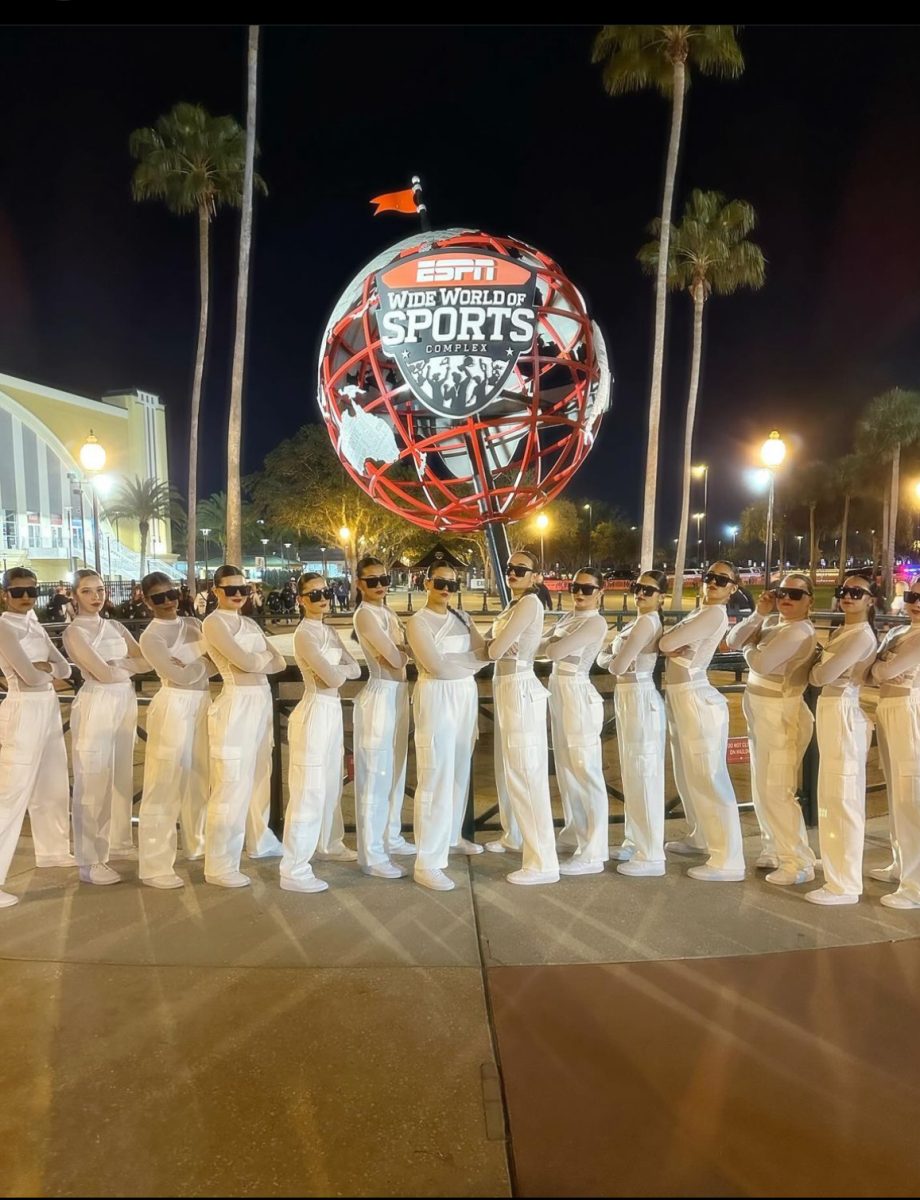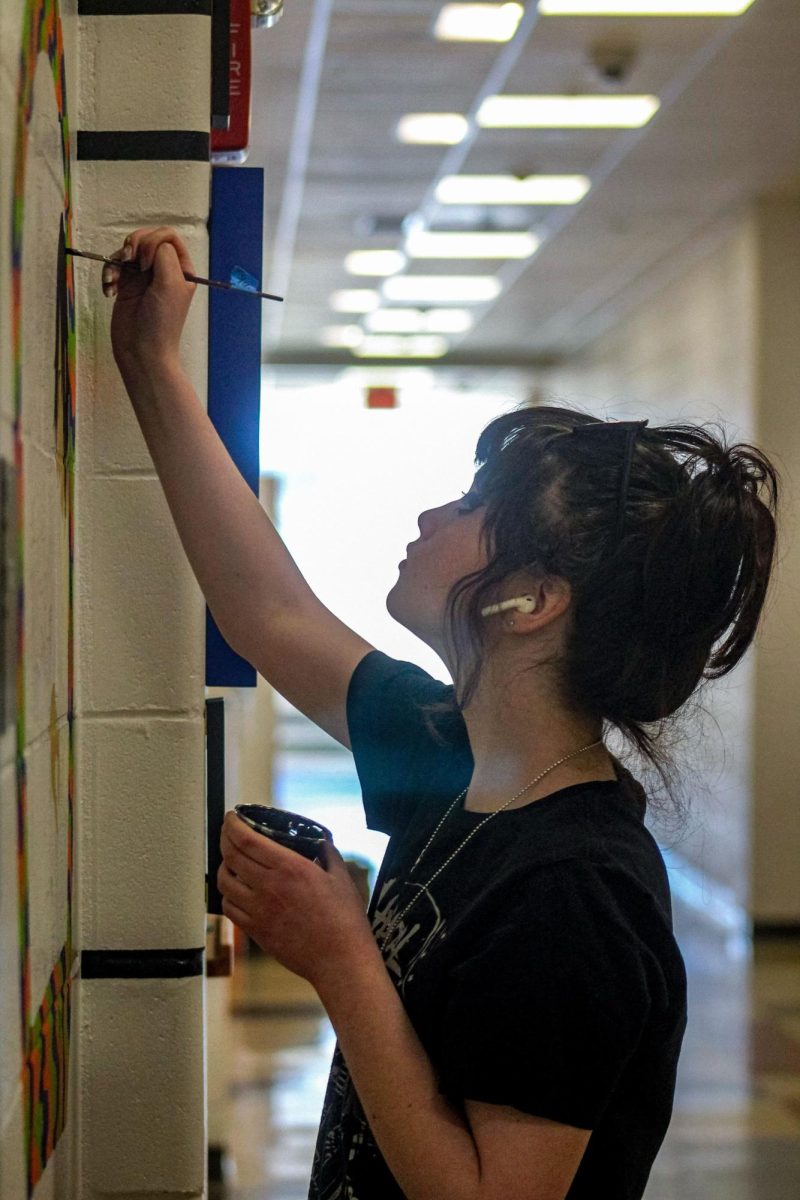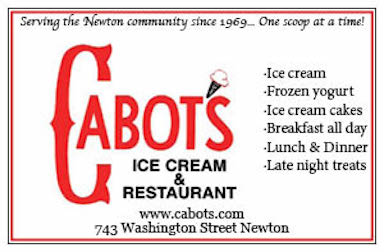by Peter Diamond
They are the people behind the curtain at every play and musical at this school. They stand with headsets, calling every light cue and every set change. They manage the actors’ schedules and keep student directors on task. They are the stage managers of Theatre Ink, this school’s teaching and working theatre.
According to senior Lida Richardson, a frequent Theatre Ink stage manager, duties and challenges of a stage manager include scheduling rehearsals, contacting actors, keeping track of cast and crew member attendance and calling technical cues during performances.
Richardson is currently working on “Big Love,” a play directed by seniors Caleb Bromberg and Katharine Norris. It is goes up Wednesday through Saturday in the little theatre.
“I was always interested in theatre, and when I heard about stage managing, I thought it was a really great way for me to use skills I already had,” said Richardson, who has stage managed at least one show each year since she was a freshman.
Richardson said she cares about being an accessible person.
“As a stage manager, I personally think it’s really important for me to be able to talk to people, and for them to know that they can talk to me.”
She emphasized the importance of communication. “Because I think communication is so important, I think it’s important to be friendly and open to help anyone with any problems they might have,” she said. “I try to be really organized so I’ll know I’m on top of everything in case anything unplanned happens, and something unplanned always happens.”
Another longtime Theatre Ink stage manager is senior Mira Netsky.
“My favorite part of stage managing is production week,” said Netsky. “It’s always so great to see the directors’ vision come true.” Production week is the week during which performances begin. This can be a stressful week for both cast and crew, according to Netsky.
Some underclassmen hope to be the great stage managers when they are seniors. One of these students is freshman Emma Sampson, who is the assistant stage manager of “Big Love.”
“I got into stage managing because I have always loved theatre and acting and singing, but I was too scared to go out onstage myself,” said Sampson. “Stage managing was a way for me to be involved in something I was passionate about without being nervous.”
As a freshman, Sampson works mostly as an assistant stage manager and takes part in the necessary training to fully stage manage productions in later years.
“The general job of an assistant stage manager is essentially the same job as a stage manager. The only real difference is that a stage manager makes all final important decisions,” said Sampson.
Sampson has definitive goals about her stage management and theatre career at this school.
“My goals for my Theatre Ink career are to continue to assistant stage manage and/or stage manage shows. I want to do at least one a year. I would love to either assistant stage manage or stage manage the big musical, and to at least call one show here. Also, I would love to direct a show.”
Another underclassmen who is breaking into the Theatre Ink world of stage management is sophomore Sarah Nemetz. She is currently the assistant stage manager of “Legally Blonde the Musical,” one of the largest undertakings of the Theatre Ink season. Since her freshman year, she said, she has been developing an understanding of the craft.
“Stage managers are the connective piece between directors and the technical side of shows,” explained Nemetz. “The way I see it is that the directors are the creative piece and the stage managers are the ones who have to reign it in and make it work.”
Echoing Nemetz’s statement that stage management is not the most creative position, Sampson said that she wishes stage management involved more creativity. “My least favorite part of stage managing is that I’m really not involved in the creative side of theatre. That’s more the directors’ job,” explained Sampson. “I would like to be more involved in that way because it is something I’ve always wanted to do, and I think I would be good at it.”
On the whole, “stage managers, in my opinion, are under-appreciated,” said Sampson. “Not many people know what they actually do, and they never get direct recognition for their work on a show.”
Even so, actors and directors alike have stated their gratitude towards stage managers.
In the program of “The Cripple of Inishmaan,” a student-directed production presented by Theatre Ink Dec. 7 through 10 in the little theatre, senior Graham Techler, a director along with senior Charlie Beers, wrote that stage managers are “the axons of the process, making sure everything runs smoothly.”
Bromberg, who, in addition to directing “Big Love” has acted in numerous Theatre Ink productions, is also extremely appreciative of stage managers.
“Let’s put it this way,” remarked Bromberg. “Directors are stereotypically the crazy, energetic, forgetful and unorganized ones. The stage manager just grounds the process. Without stage managers, there would be no show.”
If you are interested in stage managing a Theatre Ink production, check the Theatre Ink call board near 171 or talk to director of Theatre Ink Adam Brown.
























































